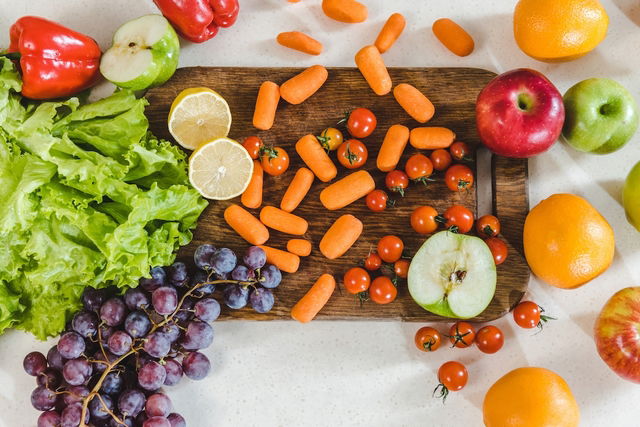The gallbladder diet is aimed at reducing symptoms of gallbladder inflammation or gallbladder stones, like pain and abdominal discomfort. These symptoms tend to worsen after eating high-fat or fried foods, which is why these types of foods should be reduced or eliminated completely from the diet during flare-ups.
When maintaining a gallbladder diet, you should opt for foods that are low in fat and high in water content. You should prioritize fresh fruit, boiled vegetables, lean cuts of meat and whole grains.
Although a gallbladder diet is a fundamental part of treating flare-ups, maintaining this diet should not replace the medical treatment prescribed by a doctor. If you suspect you may have gallstones or gallbladder information, you should see a doctor for assessment.

What to eat during a gallbladder flare
During a gallbladder flare-up, you should eat food that is low in fat and high in water content, such as:
- Fruit, like apples, pears, peaches, pineapple, watermelon, strawberries, oranges, kiwi, figs, cherries, blackberries, melon or raspberries
- Vegetables, particularly boiled veggies
- Oats and whole grains, like whole wheat pasta, rice and bread
- Tubercles, like potatoes, yams, and sweet potato;
- Skim milk and dairy products, depending on each person’s tolerance
- Plant-based drinks, like rice milk, almond milk or oat milk
- Lean meat, like skinless chicken, fish and turkey
- Drinks, like water, natural juices and teas
While the type of food is important, the way they are prepared can also play a role in gallbladder treatment. You should try to eat cooked foods (as raw can be harder to digest), and opt for steaming vegetables or grilling proteins. These cooking methods usually do not require the addition of fat.
You can also check-out these natural remedies for gallstones to help with their elimination.
What to avoid eating during a gallbladder flare
Foods that are high in fat should be reduced or eliminated from the diet temporarily, as these can stimulate the release of bile from the gallbladder. Examples of food to avoid include:
- Fatty fruits, like coconut and avocado
- Whole milk and yogurt
- Yellow cheese, like parmesan and cheddar
- Butter or any animal fat
- Fatty cuts of meat, like ribs, sausage or organ meat
- Cold cuts, like prosciutto or mortadella
- Nuts, like walnuts, chestnuts, almonds or peanuts
- Fatty fishes, like tuna, salmon and sardines
- Processed foods, like chocolate, cookies, puff pastry, meat-based broths and premade sauces
In addition, you should avoid eating frozen and pre-made meals, like pizza and lasagna, as well as fast food and alcohol. You should read nutritional labels and opt for choices that are lower in fat.
Some patients report that they may have specific foods that trigger gallbladder flare-ups, or foods that cause other symptoms like gas and bloating which can provoke flare-ups.
Sample 3-day meal plan
The following table outlines a meal plan for gallbladder flares that is aimed at relieving symptoms:
The quantities indicated in this meal plan will vary with age, sex, health history and activity level. Ideally, you should see a registered dietitian for a more thorough assessment so that a customized nutritional plan that meets your health needs can be developed.
